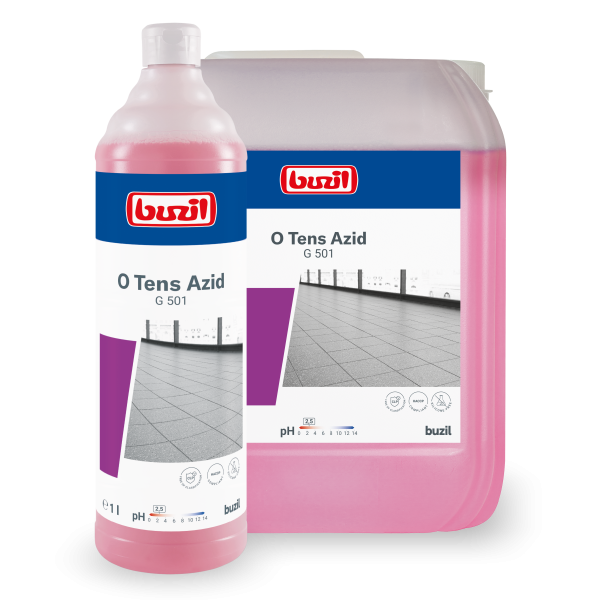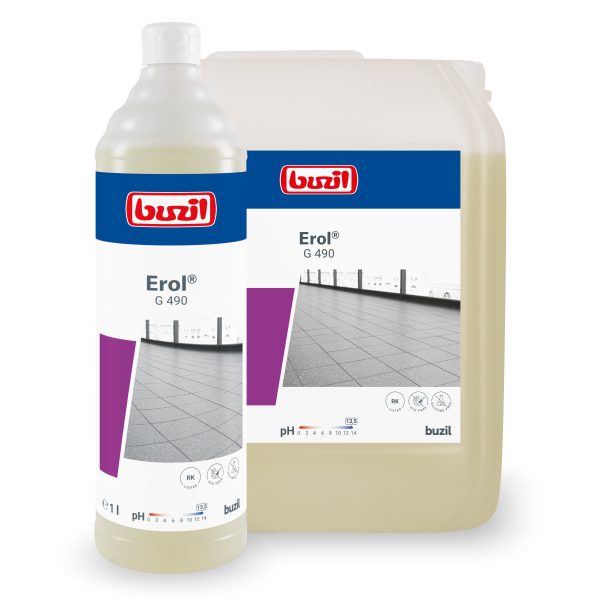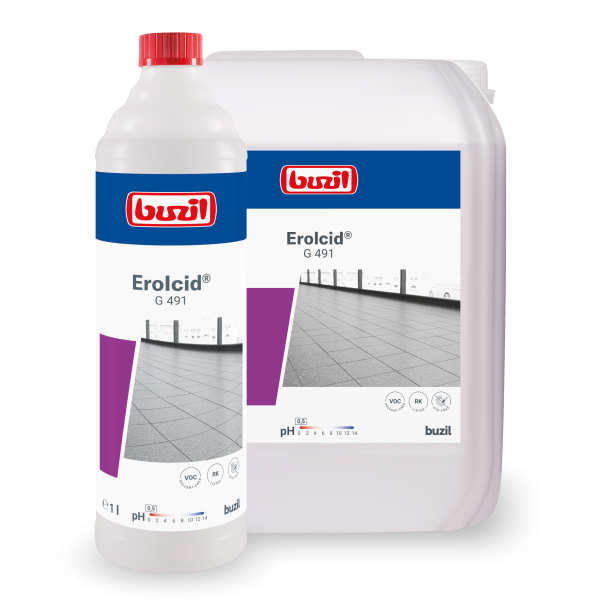Utilization
Soiling
-
Normal soiling (dust, beverage stains, insect stains, etc.)
-
Mineral soiling (lime, cement residue, urine scale, etc.)
Material compatibility
-
Travertine
-
Green sandstone | Anröchter stone
-
Solnhofer plates
-
Marble and Jurassic
-
Concrete stone and terrazzo | calcareous
-
Cast stone and terrazzo | bitumen-bound
-
Concrete stone and terrazzo | non-calcareous
-
Gabbro | Nero Assoluto
-
Safety tiles
-
Sandstone
-
Porcelain stoneware tiles
-
Shell limestone
-
Ceramic tiles
-
Laminate | Click
-
Clinker and terracotta
Product Information
- Residue-free removal of lime stains
- Low re-soiling potential
- Ideal for cleaning with microfibre textiles
- Odourless
- Excellent for alternating use with O Tens G 500
- Meets the requirements within the framework of an HACCP concept
- Low-foaming, therefore can also be used in cleaning machines
Area of application
- for microporous, fine-rough and acid-resistant floor coverings, surfaces and materials, e.g. porcelain stoneware tiles and safety tiles
Application and dosage
- Always use cold water.
-
50 - 100 Millilitre / 10 liter Water
-
20 - 100 Millilitre / 10 liter Water
-
20 - 100 Millilitre / 10 liter Water
- Apply fresh application solutions and consume them within 24 hours at the latest.
Note
- When used in the machine, the tanks should be cleaned and rinsed regularly.
- Changes or variations in colour of the product do not impact on the quality. The product image may differ in colour and shape from the original.
Tips and tricks
Surface damage (discoloration, swelling of material, etc.)
check chemical and water compatibility
Limescale deposits on the surface
Increase product dosage; choose a sanitary cleaner, e.g. Bucasan® Clear G 463
Environmental Information
Proportion of easily degradable ingredients
100 %
Phosphorus content
0 mg/g
Palm oil-based raw materials - RSPO-certified share
contain no palm oil-based raw materials
The proportion of easily degradable ingredients refers to the proportion of organic ingredients that are defined as “easily biodegradable” according to OECD 301 or Detergent Regulation (EC) No. 648/2004. The value of the phosphorus content refers to elemental phosphorus. Palm oil is an important renewable source for the production of raw materials. The Roundtable on Sustainable Palm Oil (RSPO), founded in 2004, promotes sustainable cultivation methods for palm oil. This results in a certification system and the possibility of declaring raw materials as “RSPO-certified”.
Sales units
- G501-0001RA: 12 x 1 l bottle
- G501-0010RA: 1 x 10 l canister
Download area
- Operating instructions
- Safety Data Sheets
- Technical Data Sheets
- Environmental Information





